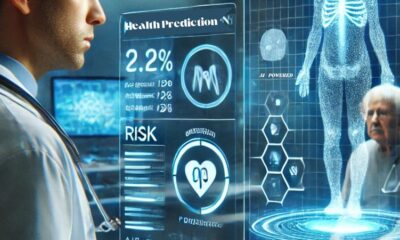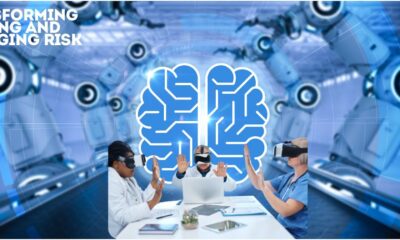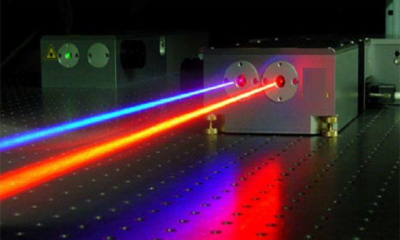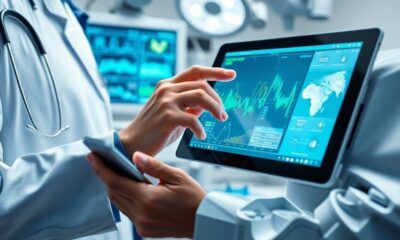Healthcare
AI-Based Medical Diagnostics: Revolutionising Healthcare
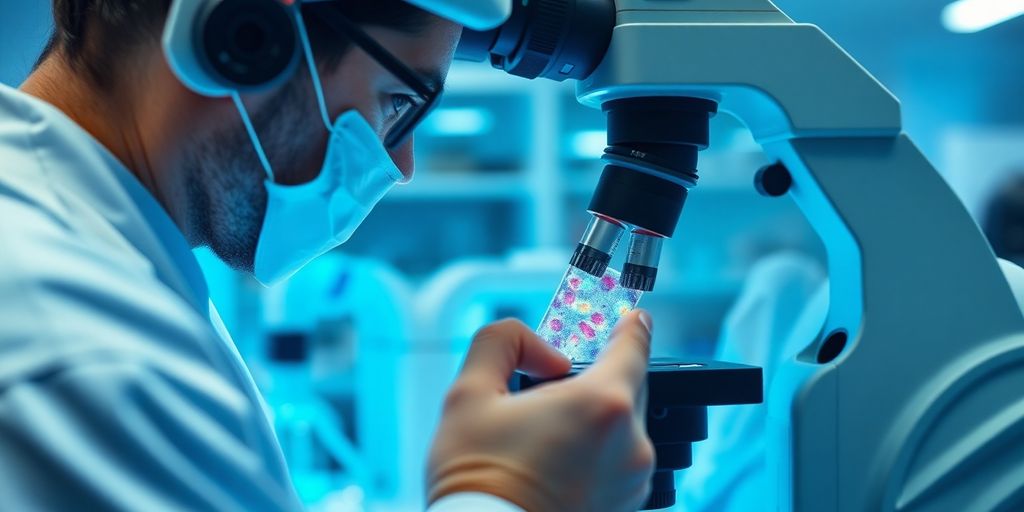
Artificial Intelligence (AI) is changing the way healthcare is delivered, especially in medical diagnostics. By using advanced technologies, AI helps doctors make better decisions, detect diseases early, and create tailored treatment plans for patients. This article discusses how AI is reshaping healthcare, focusing on its benefits, applications, and the challenges faced in its integration into medical practise.
Key Takeaways
- AI improves the accuracy of medical diagnoses, reducing human error.
- Early detection of diseases is possible with AI, leading to timely treatments.
- Personalised treatment plans are developed using individual patient data.
- AI enhances the efficiency of healthcare systems by automating tasks.
- Integrating AI into healthcare faces challenges like data privacy and training needs.
How AI-Based Medical Diagnostics Are Transforming Healthcare
Artificial Intelligence (AI) is changing the way we diagnose diseases in healthcare. By using advanced algorithms, AI helps doctors make better decisions faster. Here are some key areas where AI is making a difference:
Enhanced Diagnostic Accuracy
- AI systems can analyse complex medical data, which helps reduce human errors.
- They can process medical images and identify patterns that might be missed by human eyes.
- Studies show that AI can detect conditions like breast cancer more accurately than traditional methods.
Early Disease Detection
- Machine learning models can spot early signs of diseases, such as cancer or heart disease.
- This early detection allows for timely treatment, which can save lives.
- AI tools can also monitor patients continuously, alerting doctors to any changes in health.
Personalised Treatment Plans
- AI can tailor treatments based on individual patient data, leading to more effective care.
- By analysing a patient’s history and current health, AI can suggest the best treatment options.
- This approach not only improves outcomes but also enhances patient satisfaction.
AI is not just a tool; it is a partner in healthcare, helping to improve patient outcomes and streamline processes.
In summary, AI-based medical diagnostics are transforming healthcare by enhancing accuracy, enabling early detection, and personalising treatment plans. As these technologies continue to evolve, they hold the potential to further revolutionise the way we approach health and wellness.
The Role of Machine Learning in Medical Diagnostics
Machine learning (ML) is playing a crucial role in enhancing medical diagnostics. By analysing large datasets, ML algorithms can help healthcare professionals make better decisions. These technologies are changing how we diagnose diseases.
Data Analysis and Pattern Recognition
Machine learning excels at identifying patterns in data. Here are some key points about its role in data analysis:
- Speed: ML can process vast amounts of data quickly.
- Accuracy: It reduces human error by providing precise analyses.
- Insights: ML helps in uncovering hidden trends that may not be obvious to human analysts.
Predictive Analytics
Predictive analytics is another area where ML shines. It allows for:
- Forecasting: Anticipating disease outbreaks or patient needs.
- Risk Assessment: Identifying patients at high risk for certain conditions.
- Resource Management: Optimising the use of medical resources based on predicted needs.
Clinical Decision Support
ML also supports clinical decisions by:
- Providing real-time data to clinicians.
- Suggesting possible diagnoses based on patient data.
- Enhancing the overall efficiency of healthcare delivery.
Machine learning is not just a tool; it is a partner in improving healthcare outcomes. Its ability to analyse data and predict trends is invaluable in today’s medical landscape.
In summary, the integration of machine learning into medical diagnostics is transforming how healthcare is delivered, making it more efficient and accurate. The future of diagnostics looks promising with these advancements.
Applications of AI in Radiology
AI-Powered Image Analysis
AI is changing the way radiologists interpret medical images. AI algorithms can analyse thousands of images quickly, helping to identify patterns that might be missed by the human eye. This technology is particularly useful in:
- Detecting breast cancer in mammograms.
- Identifying hidden fractures in X-rays.
- Classifying tumours based on imaging data.
Detection of Abnormalities
AI systems excel at spotting abnormalities in medical images. They can:
- Recognise early signs of diseases like pneumonia with high accuracy.
- Assist in diagnosing conditions such as diabetic retinopathy.
- Provide quantitative measurements for better diagnosis.
Improving Radiologist Efficiency
By automating routine tasks, AI helps radiologists focus on more complex cases. This leads to:
- Reduced workload for radiologists.
- Faster turnaround times for patients.
- Enhanced collaboration between AI systems and healthcare professionals.
AI is not just a tool; it’s a partner in improving diagnostic accuracy and patient care.
In summary, the integration of AI in radiology is paving the way for more accurate diagnoses and efficient workflows, ultimately benefiting both healthcare providers and patients.
AI in Pathology: Revolutionising Disease Detection
Automated Tissue Analysis
AI is changing how we analyse tissues in pathology. Automated systems can quickly examine tissue samples, identifying patterns that might be missed by the human eye. This technology helps pathologists make faster and more accurate diagnoses.
Cancer Detection
One of the most significant advancements is in cancer detection. AI algorithms can analyse images of tissue samples to spot early signs of cancer. For instance, studies have shown that AI can detect breast cancer with a higher accuracy than traditional methods, reducing false positives and negatives.
Histopathological Image Interpretation
AI also plays a crucial role in histopathological image interpretation. By using machine learning, AI can learn from vast datasets of images, improving its ability to identify diseases. This not only speeds up the diagnostic process but also enhances the overall quality of care.
The integration of AI in pathology is not just about speed; it’s about improving the accuracy of diagnoses, which can lead to better patient outcomes.
Summary of AI Applications in Pathology
| Application | Benefits |
|---|---|
| Automated Tissue Analysis | Faster and more accurate diagnoses |
| Cancer Detection | Higher accuracy in identifying cancers |
| Histopathological Interpretation | Improved quality of care |
In conclusion, AI is revolutionising pathology by enhancing diagnostic processes, leading to better healthcare outcomes for patients.
AI and Predictive Analytics in Preventive Healthcare
Forecasting Disease Progression
AI and predictive analytics are changing how we approach healthcare by helping us forecast disease progression. By analysing large amounts of patient data, AI can identify patterns that indicate how a disease might develop. This allows healthcare providers to intervene early, potentially preventing serious health issues.
Resource Allocation
Using AI, healthcare systems can improve resource allocation. By predicting which patients are at risk of developing certain conditions, hospitals can allocate resources more effectively. This means that healthcare providers can focus their efforts on those who need it most, ensuring timely care.
Preventive Care Strategies
AI also plays a crucial role in developing preventive care strategies. By understanding the risk factors associated with various diseases, healthcare providers can create targeted interventions. For example:
- Regular screenings for high-risk patients.
- Lifestyle modification programmes tailored to individual needs.
- Vaccination drives based on predictive models of disease outbreaks.
In summary, AI-driven predictive analytics is essential for improving patient outcomes and reducing healthcare costs. By leveraging data, we can create a more proactive healthcare system that focuses on prevention rather than just treatment.
| Predictive Analytics Benefits | Description |
|---|---|
| Early Detection | Identifies at-risk patients sooner. |
| Cost Reduction | Minimises unnecessary treatments. |
| Improved Patient Outcomes | Enhances overall health management. |
Challenges in Integrating AI into Clinical Practise

AI has the potential to greatly improve healthcare, but there are several challenges that need to be addressed for successful integration. Here are some key issues:
Infrastructure and Training
- Lack of Quality Data: Many healthcare systems do not have enough high-quality data, which can lead to inaccurate results.
- Need for Training: Healthcare professionals need proper training to use AI tools effectively.
- Bias in AI: If the data used to train AI systems is biassed, the outcomes can also be biassed, affecting patient care.
Data Privacy Concerns
- Patient Data Security: Protecting sensitive patient information is crucial, and breaches can lead to serious consequences.
- Regulatory Compliance: Healthcare providers must comply with laws regarding data privacy, which can complicate AI implementation.
- Public Trust: Patients may be hesitant to trust AI with their health data, fearing misuse or breaches.
Regulatory and Ethical Issues
- Lack of Guidelines: There are currently few established guidelines for the ethical use of AI in healthcare.
- Accountability: Determining who is responsible for AI decisions in patient care can be complex.
- Continuous Monitoring: AI systems need ongoing evaluation to ensure they are functioning correctly and ethically.
Addressing these challenges requires collaboration between healthcare providers, AI developers, and regulatory bodies to create a safe and effective environment for AI in clinical practise.
| Challenge | Description |
|---|---|
| Quality Data | Insufficient high-quality data can lead to poor AI performance. |
| Training | Healthcare professionals need training to effectively use AI tools. |
| Data Privacy | Protecting patient data is essential to maintain trust and comply with laws. |
| Regulatory Compliance | Adhering to regulations can complicate AI integration. |
| Ethical Guidelines | Establishing clear ethical guidelines is necessary for responsible AI use. |
By tackling these challenges, we can pave the way for a more effective integration of AI into clinical practise, ultimately benefiting patient care and outcomes.
AI in Cardiology: Enhancing Heart Disease Diagnosis
EKG and Imaging Analysis
Artificial intelligence is making a big difference in how we analyse EKGs and medical images. AI tools can quickly process large amounts of data, helping doctors spot issues that might be missed otherwise. For example, AI can identify irregular heartbeats and other problems in EKG readings more accurately than traditional methods.
Predicting Cardiovascular Risks
AI is also used to predict the risk of heart diseases. By looking at various factors like age, weight, and medical history, AI can help doctors understand a patient’s risk level. This means that patients can receive timely advice on lifestyle changes or treatments to prevent heart issues.
Personalised Cardiac Care
With AI, treatments can be tailored to individual patients. This means that doctors can create personalised care plans based on a patient’s unique health data. For instance, AI can suggest specific medications or therapies that are most likely to work for a particular patient, improving overall treatment outcomes.
AI is changing the way we approach heart disease, making diagnosis and treatment more accurate and personalised.
| AI Application | Benefit |
|---|---|
| EKG Analysis | Faster and more accurate readings |
| Risk Prediction | Early intervention opportunities |
| Personalised Treatment Plans | Tailored care for better outcomes |
AI for Diagnosing Infectious Diseases
Rapid Pathogen Identification
AI technologies are making it possible to identify pathogens quickly and accurately. AI algorithms can analyse patient data to detect infections, even when traditional methods might fail. This rapid identification is crucial in managing outbreaks and ensuring timely treatment.
Antibiotic Resistance Detection
One of the significant challenges in treating infections is antibiotic resistance. AI can help in identifying resistant strains of bacteria, allowing healthcare providers to choose the most effective treatments. This capability is vital for improving patient outcomes and combating the global issue of antibiotic resistance.
Optimising Treatment Plans
AI systems can analyse vast amounts of data to recommend tailored treatment plans for patients. By considering individual patient histories and the specific characteristics of the infection, AI can suggest the best course of action, enhancing recovery rates.
| Application | Benefit |
|---|---|
| Rapid Pathogen Identification | Quick diagnosis and treatment initiation |
| Antibiotic Resistance Detection | Improved treatment effectiveness |
| Optimising Treatment Plans | Personalised care for better outcomes |
The implications of artificial intelligence on infection management are profound. AI algorithms demonstrated the capability to rapidly diagnose COVID-19 even when radiological findings appeared normal by integrating clinical symptoms, which is a game-changer in infectious disease diagnostics.
The Future of AI-Based Medical Diagnostics
Emerging Technologies
The future of AI in medical diagnostics is bright, with new technologies on the horizon. Innovations like advanced machine learning algorithms and improved imaging techniques are set to enhance diagnostic capabilities. These technologies will allow for:
- Faster processing of medical data
- More accurate disease detection
- Enhanced patient outcomes
Potential Benefits
The potential benefits of AI in healthcare are significant. AI can:
- Reduce diagnostic errors
- Improve patient care through tailored treatments
- Increase efficiency in healthcare systems
Overcoming Current Limitations
Despite its promise, AI faces challenges that need addressing. Key areas to focus on include:
- Ensuring data privacy and security
- Training healthcare professionals to use AI tools
- Developing regulations to govern AI applications in medicine
The integration of AI in healthcare is not just a trend; it’s a necessity for improving patient outcomes and operational efficiency.
AI is already showing its potential in various fields, including cardiology and radiology, and as technology advances, its role in diagnostics will only grow. For instance, AI systems have detected previously unrecognised patterns in a standard EKG that can identify a genetic heart disease. This capability highlights the transformative power of AI in modern medicine.
AI in Emergency Medicine
AI is changing how we handle emergencies in healthcare. It helps doctors make quicker and better decisions when every second counts. Here are some key areas where AI is making a difference:
Triage and Patient Prioritisation
- AI systems can quickly assess patients’ conditions based on their symptoms.
- They help in prioritising patients who need immediate care, reducing waiting times.
- This ensures that those in critical condition receive attention first.
Symptom Assessment Tools
- AI tools can ask patients questions to gather important information.
- They provide a summary of the patient’s condition to the healthcare team.
- This helps in making informed decisions about treatment.
Optimising Emergency Department Workflow
- AI can predict how many patients will arrive at the emergency department.
- It helps in managing resources effectively, ensuring that staff and equipment are available when needed.
- By analysing data, AI can suggest the best treatment options for patients, improving overall care.
AI in emergency medicine not only speeds up diagnosis but also enhances the quality of care provided to patients. By using advanced algorithms, healthcare professionals can focus on what matters most: saving lives.
In summary, AI is a powerful tool in emergency medicine, helping to improve patient outcomes and streamline processes. Its ability to analyse data quickly and accurately is transforming how we respond to medical emergencies.
AI in Dermatology: Skin Cancer and Beyond
Melanoma Detection
AI technology is making a significant impact in the field of dermatology, particularly in melanoma detection. Advanced algorithms can analyse skin images to identify potential cancerous lesions with remarkable accuracy. Studies have shown that AI can match or even surpass the diagnostic skills of experienced dermatologists. This is crucial as early detection can lead to better treatment outcomes.
Treatment Recommendations
AI systems are also being used to provide treatment recommendations for various skin conditions. By evaluating patient data and historical treatment outcomes, these systems can suggest personalised treatment plans. This not only enhances patient care but also streamlines the decision-making process for healthcare providers.
Other Dermatological Applications
The applications of AI in dermatology extend beyond skin cancer. Here are some notable uses:
- Telemedicine: AI tools enable remote consultations, allowing dermatologists to assess skin conditions from afar.
- Predictive Analytics: AI can predict the likelihood of skin conditions developing based on patient history and environmental factors.
- Automated Reporting: AI can generate reports on skin conditions, saving time for healthcare professionals.
AI is transforming dermatology by providing tools that enhance diagnostic accuracy and improve patient outcomes. Its ability to analyse vast amounts of data quickly is a game-changer in the fight against skin cancer and other skin diseases.
| Application | Description |
|---|---|
| Melanoma Detection | AI algorithms analyse images for early signs of skin cancer. |
| Treatment Recommendations | AI suggests personalised treatment plans based on patient data. |
| Telemedicine | Remote consultations facilitated by AI tools for skin assessments. |
AI in Clinical Laboratories
Clinical laboratories play a vital role in healthcare by providing essential information for diagnosing and monitoring diseases. AI is set to enhance the efficiency and accuracy of laboratory processes, making them faster and more reliable.
Automated Blood Cultures
- AI can automate blood culture processes, allowing for quicker identification of pathogens.
- This leads to faster treatment decisions, which is crucial for patient outcomes.
- Automation reduces human error, ensuring more consistent results.
Susceptibility Testing
- AI systems can analyse data to determine the best antibiotics for treating infections.
- This helps in tailoring treatments to individual patients, improving recovery rates.
- The use of AI can significantly cut down the time needed for testing, often providing results within 24 to 48 hours.
Molecular Diagnostics
- AI enhances molecular testing by analysing complex genetic data.
- It can identify specific mutations that may affect treatment options.
- This technology supports personalised medicine, allowing for targeted therapies.
The integration of AI in clinical laboratories not only improves diagnostic accuracy but also optimises workflow, ultimately benefiting patient care.
Conclusion
In summary, artificial intelligence is changing the way we diagnose medical conditions, making it more precise and efficient. By using smart technology, healthcare professionals can spot diseases earlier and create treatment plans that fit individual patients better. However, to make the most of these advancements, we need to tackle some challenges, like ensuring patient data is safe and integrating AI into current healthcare systems. Embracing these changes can lead to a brighter future for healthcare, where patients receive better care and outcomes.
Frequently Asked Questions
What is AI in medical diagnostics?
AI in medical diagnostics uses computer systems to help doctors find and understand diseases more accurately and quickly.
How does AI improve diagnostic accuracy?
AI can analyse large amounts of medical data and images, spotting patterns that humans might miss, which leads to more accurate diagnoses.
Can AI detect diseases early?
Yes, AI can identify early signs of diseases like cancer or heart issues, allowing for quicker treatment.
What are personalised treatment plans?
Personalised treatment plans are tailored to each patient’s unique health data, which AI helps create for better outcomes.
What role does machine learning play in diagnostics?
Machine learning helps AI learn from data, improving its ability to predict diseases and assist doctors in making decisions.
Are there challenges in using AI in healthcare?
Yes, challenges include the need for proper training, concerns about data privacy, and the need for clear regulations.
How is AI used in radiology?
In radiology, AI helps analyse medical images, detect abnormalities, and make the work of radiologists more efficient.
What is the future of AI in medical diagnostics?
The future looks bright, with ongoing advancements in technology that promise to enhance accuracy and patient care even further.
-

 Press Release7 days ago
Press Release7 days agoCrypto WINNAZ Launches First On-Chain Yield Engine for Meme Coins, Enabling 20x–300x Returns
-

 Press Release4 days ago
Press Release4 days agoBellarium ($BEL) Price Prediction: Could It Hit $5 by 2026?
-

 Press Release1 day ago
Press Release1 day agoClinical Trials Market Set for Robust Growth, Driven by Drug Development Surge and Digital Innovation
-

 Business3 days ago
Business3 days agoHow Managed IT Solutions Help Small Teams Compete at Enterprise Scale
-

 Press Release2 days ago
Press Release2 days agoFill-Finish Pharmaceutical Contract Manufacturing Market Expected to Flourish Amid Biopharmaceutical Boom and Global Outsourcing Trend by 2035
-

 Press Release2 days ago
Press Release2 days agoPreventive Vaccines Market to Witness Strong Growth by 2035
-

 Press Release2 days ago
Press Release2 days agoGreen Bio Chemicals Market Poised for Sustainable Growth amidst Global Shift to Eco-Friendly Alternatives by 2035
-

 Press Release2 days ago
Press Release2 days agoIndustrial Boiler Market Expected to Surpass USD 24.4 Billion by 2035 Amid Growing Demand for Energy Efficiency and Industrialization




